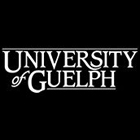- News and articles
- Find usIDP AustraliaIDP BahrainIDP BangladeshIDP CambodiaIDP CanadaIDP ChinaIDP EgyptIDP GhanaIDP Hong KongIDP IndiaIDP IndonesiaIDP IranIDP JordanIDP KenyaIDP KoreaIDP KuwaitIDP LebanonIDP MalaysiaIDP MauritiusIDP Middle EastIDP NepalIDP New ZealandIDP NigeriaIDP OmanIDP PakistanIDP PhilippinesIDP Saudi ArabiaIDP SingaporeIDP Sri LankaIDP Taiwan, ChinaIDP ThailandIDP TurkeyIDP UAEIDP VietnamIDP Corporate
- Social
- English
- Where we operate
- Courses
- Scholarships
- IELTS
- About IDP
- Student Essentials
- News and articles
- Find us
- Find us
- Find nearest IDP offices
- IDP Australia
- IDP Bahrain
- IDP Bangladesh
- IDP Cambodia
- IDP Canada
- IDP China
- IDP Egypt
- IDP Ghana
- IDP Hong Kong
- IDP India
- IDP Indonesia
- IDP Iran
- IDP Jordan
- IDP Kenya
- IDP Korea
- IDP Kuwait
- IDP Lebanon
- IDP Malaysia
- IDP Mauritius
- IDP Middle East
- IDP Nepal
- IDP New Zealand
- IDP Nigeria
- IDP Oman
- IDP Pakistan
- IDP Philippines
- IDP Saudi Arabia
- IDP Singapore
- IDP Sri Lanka
- IDP Taiwan, China
- IDP Thailand
- IDP Turkey
- IDP UAE
- IDP Vietnam
- IDP Corporate
- Social
- Language Switcher
- IDP Education /
- Colleges and Universities /
- Canada /
- University of Guelph /
- Master of Arts in English


Location
Canada
Qualification
Masters Degree
Fees
CAD20512
(2025)
Duration
2 Semester(s)
Next intake
08 September 2025
Entry Score
6.5
IELTSCourse info
The study of English at the University of Guelph retains a sense of the histories which inform the current developments in the disciplines, while insisting on theorizing inquiry, so that students emerge from the program with a sense of the history of English studies itself and the changing role of canonical texts and readings in that history, and their knowledge of the basic repertoire of canonical texts is augmented by a sense of the process by which texts come to the core of the discipline.
Preparation for advanced academic work at the PhD level is the primary focus of the program, but the program also encourages students to consider alternative career paths in teaching, administration, advertising, research, journalism, publishing, law, arts management, the media, information technology, creative writing, public relations, the entertainment industry and other enterprises requiring analytical, organizational, and creative skills in communications.
- Scholarships View all scholarships
- Internships
Entry requirements for University of Guelph
International English Language Testing System (Academic) (IELTS) 6.5 , Test of English as a Foreign Language (TOEFL) and (TOEFL Special Home Edition (iBT)) 89 A minimum score of 21 must be achieved in each of the four categories (listening, speaking, reading, writing)
Application Deadline
The application deadline isn't available Speak to an IDP counsellor for more detailed information
Further information
If you aren't eligible for the above entry requirements, you might ant to explore pathway options at University of Guelph. If you want to find out more, speak to our counsellors.
THE World Ranking
401st / 1250
THE World RankingWhat our students think
We’ve haven’t received any reviews for this institution yet.
Recommended for you
- THE World Ranking:501
- Masters Degree
- St. Johns , Canada
- Next intake:09/2025
- Entry Score: IELTS 6.5
- CAD4833 (2025)
- THE World Ranking:501
- Masters Degree
- St. Johns , Canada
- Next intake:09/2025
- Entry Score: IELTS 6.5
- CAD4833 (2025)
- THE World Ranking:501
- Masters Degree
- St. Johns , Canada
- Next intake:09/2025
- Entry Score: IELTS 6.5
- CAD4833 (2025)
- THE World Ranking:501
- Masters Degree
- St. Johns , Canada
- Next intake:09/2025
- Entry Score: IELTS 6.5
- CAD4833 (2025)
- THE World Ranking:501
- Masters Degree
- St. Johns , Canada
- Next intake:09/2025
- Entry Score: IELTS 6.5
- CAD4833 (2025)
- THE World Ranking:501
- Masters Degree
- St. Johns , Canada
- Next intake:09/2025
- Entry Score: IELTS 6.5
- CAD4833 (2025)
- THE World Ranking:501
- Masters Degree
- St. Johns , Canada
- Next intake:05/2025
- Entry Score: IELTS 6.5
- CAD4833 (2025)
- Graduate Certificate
- Victoria , Canada
- Next intake:09/2025
- Entry Score: IELTS 6.5
- CAD5492 (2025)
Your action plan
Step 1
Shortlist your courses
Choose the best three courses you’re most likely to pursue.
Step 2
Check your eligibility
Get an instant in-principle offer for courses with the IDP FastLane tag.
Step 3
Apply through IDP Live
Fill out the form once and use it to apply to multiple courses.
How does IDP FastLane work?
With the FastLane 'Offer in Principle', you'll know in minutes if you'll be accepted!
Select an institution and course
Create your academic profile
Submit your application for an 'Offer in Principle'
Your chosen institution(s) will send you a decision in minutes!
Get ready to apply with an expert counsellor




